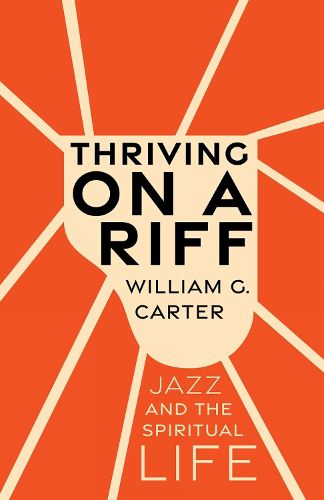Readings Newsletter
Become a Readings Member to make your shopping experience even easier.
Sign in or sign up for free!
You’re not far away from qualifying for FREE standard shipping within Australia
You’ve qualified for FREE standard shipping within Australia
The cart is loading…






What does jazz have to do with human spirituality?
In Thriving on a Riff, Presbyterian minister and jazz pianist Bill Carter shows us how jazz, in its quest for transcendence, bridges the gap between the secular and the sacred and, further, that these two worlds are not mutually exclusive--jazz is spiritual.
Carter traces jazz from its origins in the twilight of American slavery, to its evolution from dance music to serious art form during the American civil rights movement, and its eventual introduction into the church as a legitimate expression of praise and lament. Along the way, he explores the spiritual dimensions of jazz, with its blend of passion and intellect, its ability to awaken us to something in and beyond ourselves.
From King David to Dave Brubeck, from the Psalms of Israel to John Coltrane's A Love Supreme, musicians help us glimpse the experience of music as communion with the Divine. And true to jazz sensibilities, brief "Improvisation" sections add to the gravitas and delight, expounding on the chapter's theme in the form of a poetic extension without breaking rhythm. Weaving together stories from the history of American music with his personal experiences as a working musician, Carter invites us to meet a God who not only embraces syncopation but blesses the swing.
$9.00 standard shipping within Australia
FREE standard shipping within Australia for orders over $100.00
Express & International shipping calculated at checkout
What does jazz have to do with human spirituality?
In Thriving on a Riff, Presbyterian minister and jazz pianist Bill Carter shows us how jazz, in its quest for transcendence, bridges the gap between the secular and the sacred and, further, that these two worlds are not mutually exclusive--jazz is spiritual.
Carter traces jazz from its origins in the twilight of American slavery, to its evolution from dance music to serious art form during the American civil rights movement, and its eventual introduction into the church as a legitimate expression of praise and lament. Along the way, he explores the spiritual dimensions of jazz, with its blend of passion and intellect, its ability to awaken us to something in and beyond ourselves.
From King David to Dave Brubeck, from the Psalms of Israel to John Coltrane's A Love Supreme, musicians help us glimpse the experience of music as communion with the Divine. And true to jazz sensibilities, brief "Improvisation" sections add to the gravitas and delight, expounding on the chapter's theme in the form of a poetic extension without breaking rhythm. Weaving together stories from the history of American music with his personal experiences as a working musician, Carter invites us to meet a God who not only embraces syncopation but blesses the swing.